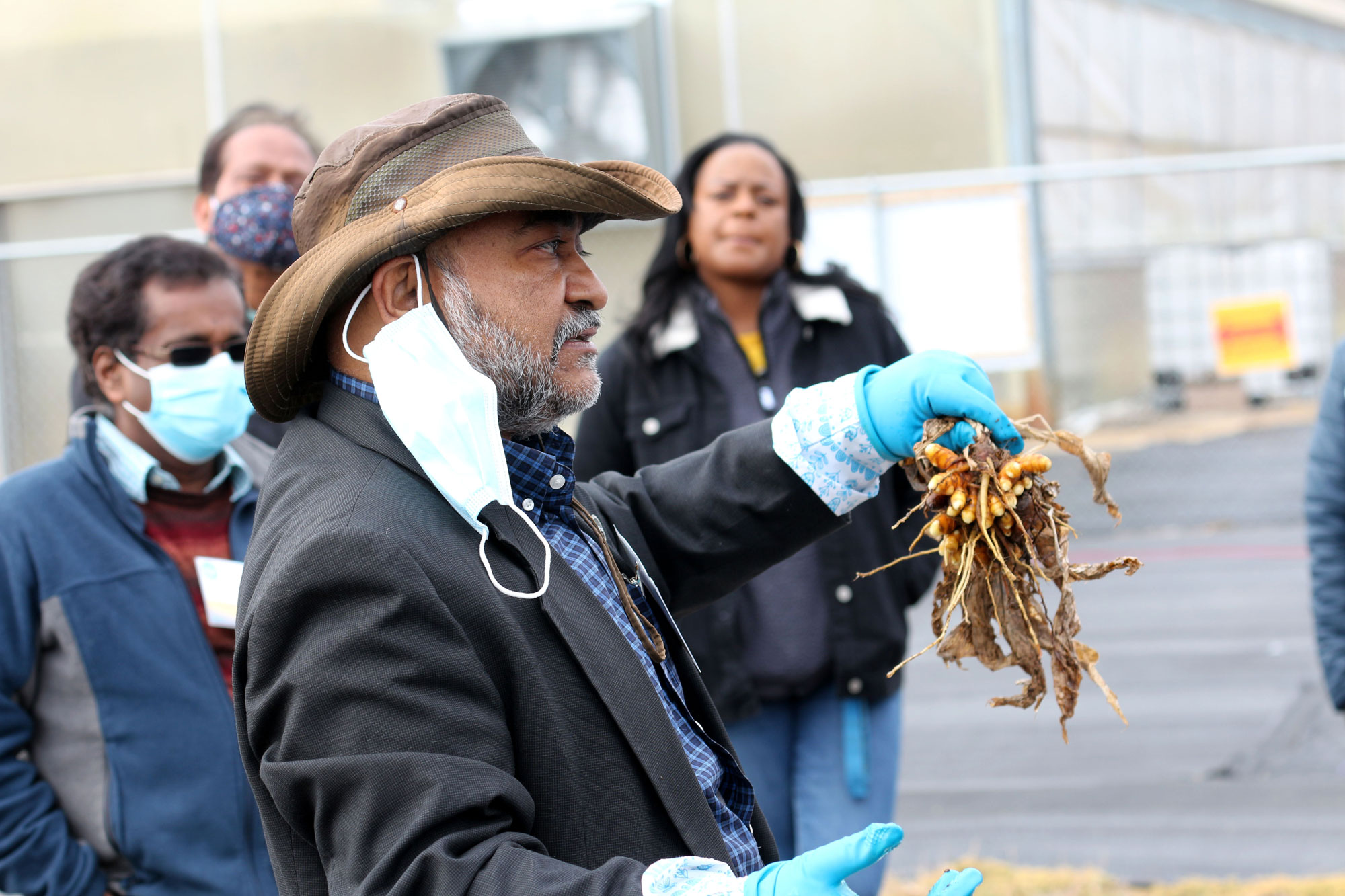With last month’s announcement of the 2023 Specialty Crop Block Grant awards, the program has reached a milestone of over $1 billion invested into projects to support the U.S. specialty crop industry. Since the program’s inception in 2006, 1890s land-grant universities throughout the country have been using USDA’s Specialty Crop Block Grant Program (SCBGP) funding to address key specialty crop challenges in their states. SCBGP supports these historically Black colleges and universities, and others nationwide, by funding a variety of grant projects that enhance the competitiveness of specialty crops.
South Carolina State University’s 1890s Research and Extension Program is one example. The university is currently using funds awarded in 2021 for a project to evaluate the economic potential of producing chickpeas in the sandy soils of South Carolina’s Midlands. Over the next year, the project will conduct field research for six growing varieties and create a chickpea production manual specific to South Carolina. The project team sees many benefits to introducing chickpeas to the state, including creating more crop diversity and improving resilience to the state’s increasingly variable climate. We are eager to see how this project unfolds!
Two other projects recently wrapped up their work and provided the knowledge base to boost production for in-demand crops in their states. In 2019, Fort Valley State University in Georgia received SCBGP funding to explore production of turmeric, a rapidly emerging new crop within the state. Through the project, over 500 people were educated on turmeric production and the growing consumer interest in the commodity. Likewise, Missouri’s Lincoln University’s SCBGP project determined Jade Cross brussels sprouts were the best variety for growing in Missouri with ideal growing season beginning in May. The information was shared with 400 growers through extensive outreach.
USDA is proud to support the impact these institutions are making in enhancing production, access, and knowledge of specialty crops for a safe and healthy food supply.
Administered by the Agricultural Marketing Service, SCBGP is just one way USDA engages with our 1890s partners in their role as critical leaders, innovators, and change makers for higher education in underserved communities.
For more information on these projects, reach out to SCBlockGrants@usda.gov. To learn more about USDA’s work with 1890s institutions, please visit USDA’s Minority-Serving Higher Education Institutions webpage.


